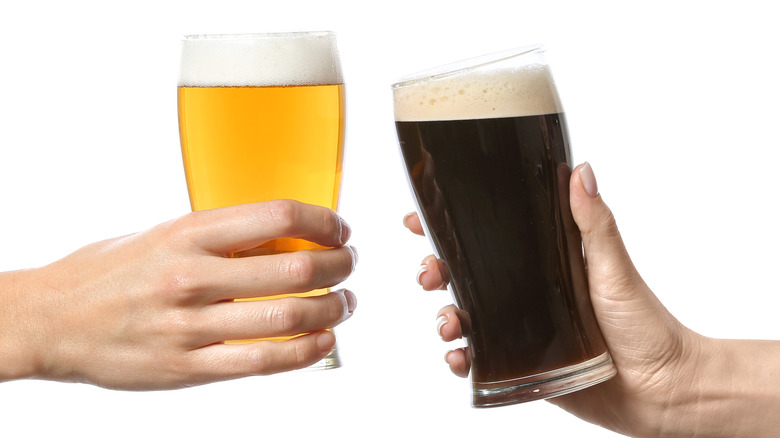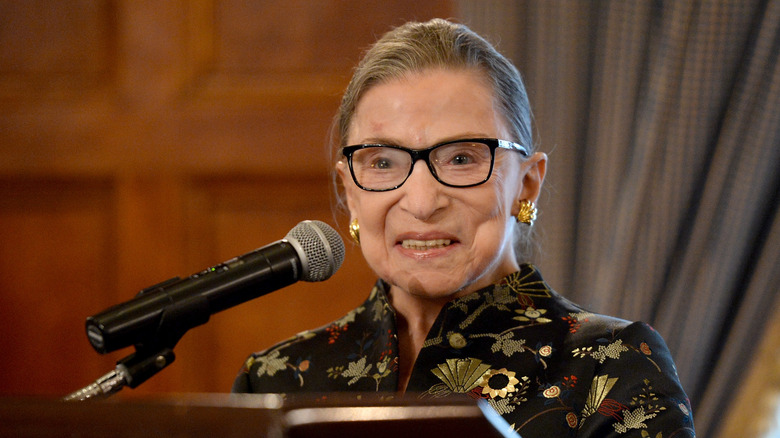You Can Thank RBG And Gloria Steinem For Making Beer More Accessible
The lines, the crowds, the exhausted cashiers. Trudging from store to store to find the perfect necktie, your aching feet and frustration are about to finally be behind you. You've finished your holiday shopping, and you are flooded with a mixture of relief and gratitude and joy, coupled with the inexorable desire to throw back a cold one, so you head to the nearest pub and belly up to the bar.
This was the scenario in 1967, according to Literary Hub, when a college student and her mother finished holiday shopping and decided to imbibe libations at the Rainbow Lounge of the Hotel Syracuse. They didn't get to perch on a barstool and toast their shopping successes, though, because they were denied entry, as they were women without male escorts. They were not allowed to drink at the bar. Well, Hell hath no fury like that of a tired holiday shopper in need of a drink.
The incident eventually spurred efforts from iconic equal rights warriors like Ruth Bader Ginsburg and Gloria Steinem, and women are now able to partake of a beer whenever, wherever, with whomever they chose. They also account for more than half of the vodka sales in the U.S., per Wine Enthusiast, reminiscent of fictional feminist icon Carrie Bradshaw's allegiance to the cosmopolitan. It turns out there's an interesting story that paved the way for gender equality at the liquor store or neighborhood bar.
The beer battle that altered discrimination law in America
The student was furious, and soon afterward reached out to Karen DeCrow, who would eventually helm The National Organization for Women (via New York Times). The law student was incensed that women could be excluded from the local watering hole solely on the basis of gender, per Literary Hub, and took up the cause, organizing a series of 'drink-ins' at bars across the country that refused entry to women. In 1969, Gloria Steinem and several NOW members walked into Chicago's storied 'men's only' Berghoff bar and demanded to be served, according to the establishment's website.
The battle continued a few years later when a young man was arrested for buying beer underage in Oklahoma. The female liquor store owner was also arrested. In Oklahoma, a woman could purchase the spirit at the age of 18, but a man had to be 21. The "stupid little beer case," as it was described by the arguing attorney, made its way to the Supreme Court (via Tulsa World). Seated beside the attorney, in front of the justices of the Supreme Court, was his friend Ruth Bader Ginsburg. She was working for the ACLU at the time and had written an amicus curiae brief to the court to support the case's claim that the beer law was unconstitutional. The ensuing decision, Craig v. Boren, became a landmark and pivotal case that ultimately altered the scope and applicability of gender discrimination law in America.

